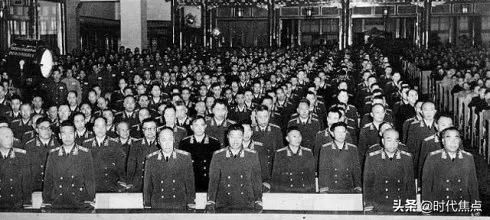Huang Chao, born in 1905, is a native of Bayan Village, Yixu Township, Bama, Guangxi. Formerly known as Huang Xuanhua. Zhuang. He joined the Chinese Workers' and Peasants' Red Army in 1929 and joined the Communist Party of China in October 1930.

(i)
In 1926, under the influence of Wei Baqun, Huang Chao joined the Fenghuang District Farmers' Association and the Peasants' Self-Defense Army in Fengshan County, and served as a correspondent of the District Farmers' Association and the director of the District Peasants' Self-Defense Army Company.
In 1929, Huang Chao participated in the Baise Uprising. Later, he served as a member of the Grain Commissar of the Soviet Government of the Bachai District and the director of the 1st Column of the Red 7th Army.
In November 1930, Huang Chao participated in the reorganization of Hechi and went north with the main force of the Red 7th Army, serving as a clerk in the headquarters of the 19th Division.
After arriving in the Central Soviet Region in July 1931, Huang Chao served as the instructor of the 56th Regimental Company of the 19th Division of the 3rd Red Army, the instructor of the Guard Company of the 4th Division, and the officer of the Political Department of the Third Bureau of the Central Military Commission, and participated in the third to fifth anti-"encirclement and suppression" operations and the Long March in the Central Soviet Region.
After arriving in northern Shaanxi in October 1935, Huang Chao entered the second phase of the Red Army University.
(ii)
During the War of Resistance Against Japanese Aggression, Huang Chao successively served as the organization officer of the Political Department of the 385th Brigade of the 129th Division of the Eighth Route Army, the chief of the Organization Unit of the Political Department of the 770 regiment, the political commissar of the brigade teaching team, the director of the Political Department of the 8th Military Sub-district of the Jiluyu Military Region, the deputy director of the Political Department directly under the General Political Department of the Central Military Commission, and the regimental officer of the Security Department of the General Political Department.
(iii)
During the Liberation War, Huang Chao successively served as the director of the political department of the 1st Brigade of the Rehe Column, the director of the political department of the 18th Division of the 6th Column of the Northeast Democratic Coalition Army, the cadet of the Shuangcheng Shanggan Brigade in the Northeast Region, and the deputy political commissar and director of the Political Department of the Artillery Logistics Department of the Fourth Field Army. He participated in the battles of Liaoshen and Pingjin.
(iv)
After the founding of New China, Huang Chao successively served as the political commissar of the Artillery Logistics Department of the Northeast Military Region and the political commissar of the Oil Department of the Logistics Department of the Shenyang Military Region (deputy military level).
In 1965, Huang Chao left his post to recuperate and enjoy the treatment of deputy corps.
In September 1955, he was awarded the rank of colonel, and was awarded the Order of August 1, 3rd Class, the Order of Independence and Freedom, 2nd Class, the Liberation Medal 2nd Class, and the Medal of Merit of the Red Star, 2nd Class. He was a member of the CPPCC And Standing Committee of Guangxi Zhuang Autonomous Region.
On July 31, 1992, Huang Chao died of illness (address unknown) at the age of 87.